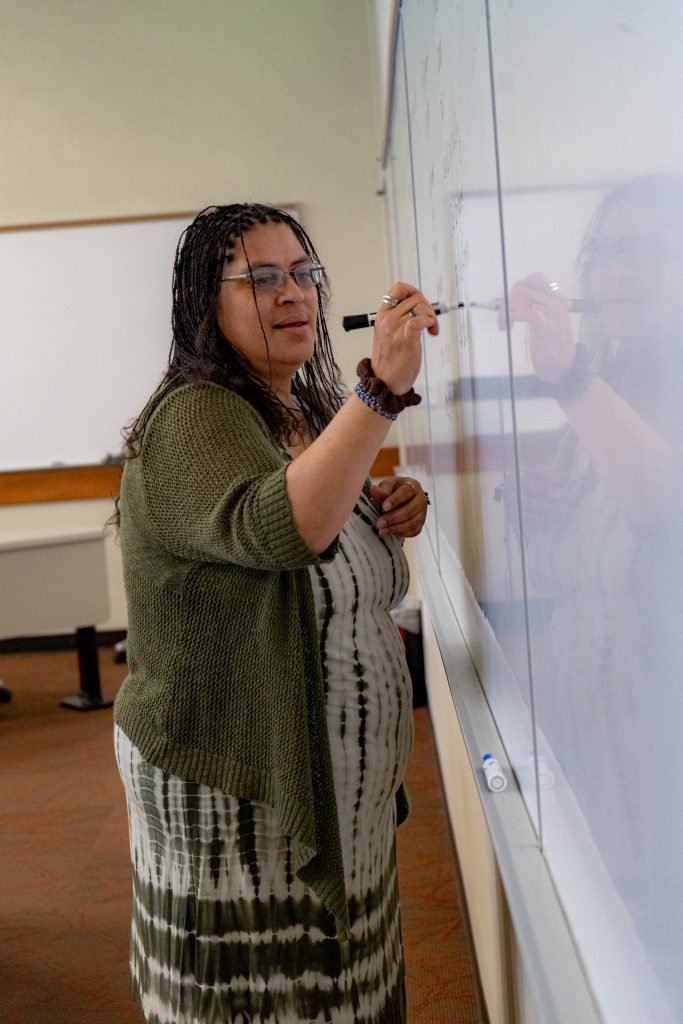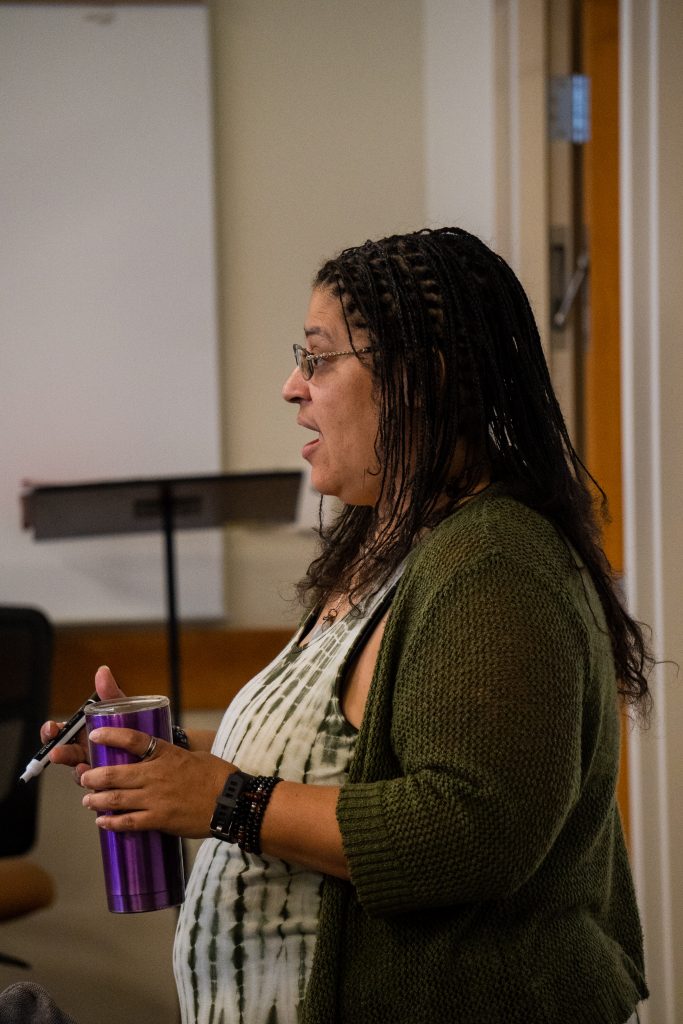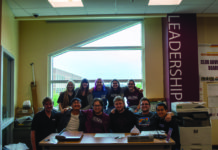College is hard for a freshman. College is hard for a sophomore. College is hard for everyone, in fact, for both underclassmen and upperclassmen alike. Colorado Mesa University’s (CMU) Professor Dee Chambers understands this struggle, which is why she tries her very hardest every single day to be a bright light in the lives of students who might be struggling. It’s why she’s sanctioned her classroom as a “safe space.” A safe space where students can be themselves and talk about their thoughts and feelings.
Chambers has lived in Japan, England, the American Midwest and now the Grand Valley. She’s been through numerous personal struggles and challenges and has pulled through a vast amount of very hard times. Because of her background and experiences, Chambers said that she’s been able to relate to and connect to many different types of students.

Noah Stahlecker for The Criterion 
Noah Stahlecker for The Criterion
“I have students that are former military or have family members that are in the military, I can relate to that experience. I have students that have studied abroad, I can relate to that experience. I have students that are coming up from a lower income, I can relate to that experience. I have students that are single parents, I can relate to that experience. I have students that have had difficulties with their mental health, I can relate to that experience,” Chambers said. “And I think that is an advantage. Because when you can connect with a student, it gives them a sense of belonging.”
Chambers teaches Speechmaking, Interpersonal Communications, Argumentation and Debate and the Dark Side of Communication. CMU freshman Elsie Lemon, who took Chambers’ Speechmaking class last semester, said that it was a very enjoyable class because of how it was structured.
“She is super cool. She included us in figuring out the best grading system for us. She took [the] time and asked what we wanted. It was really sweet of her to include us in that. She felt since it was our grade, we should be included in it,” Lemon said.
Even just talking to Professor Chambers, it’s clear that she is a very special person. She displays a remarkable amount of strength as a professor, as an advisor and as a mentor. She said that she cares deeply about each and every one of her students and that one of her main goals as a professor is to connect to college students and help them feel better in their day to day lives.

“Moving away from home, for the first time living in a dorm with people you don’t know, taking classes with unfamiliar information sometimes most of the time, I mean, that can be all very disjointing. It takes you out of what you know and puts you in it in this unbalanced kind of situation. And having someone that [they] can go ‘hey, I can connect with you, which means I can identify with being here’ may [keep] them from slipping from through the cracks and not coming back,” Chambers said.
CMU sophomore Justin Platt took one of Chambers’ classes during his freshman year, and he remembers her as a professor who had a large amount of influence on him.
“She was one of the [professors] I really liked because she was always willing to help. If I had questions, I would go to her office hours, and I wouldn’t even talk about class all the time. I would talk about my past because I felt so comfortable with her because she was so open that I felt like I could be open as well,” Platt said.
The idea of being one hundred percent there for her students is something that Chambers holds near and dear to her heart, and it’s what makes her such a unique professor.
“When I started looking at instruction, I was like, wow, I can really set up a classroom environment that is a safe space for students,” Chambers said. “When I teach Interpersonal Communication when I teach Speechmaking, I can really set up this environment where students can feel free to talk about what they need to talk about, where I can connect with them and give them someone that they can connect to on-campus that they feel safe [with] and can come [to] talk to. I can really do those things; I can make a difference.”






